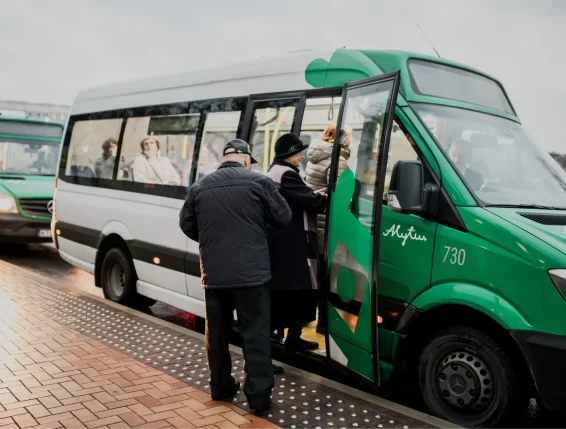As the demand for efficient public transportation continues to rise in Lithuania, the need to improve bus services between Alytus and Vilnius has become increasingly evident. The journey between these two cities, which play significant roles in the region’s economy and culture, is often marred by delays and inconsistencies in service, making it imperative to enhance the current infrastructure and operational practices. A comprehensive upgrade of the bus services could not only improve commuter experiences but also contribute to broader economic benefits, environmental sustainability, and regional connectivity. Currently, the bus route connecting Alytus to Vilnius serves as a vital link for many daily commuters, students, and travelers. However, the average travel time, which can extend to over two hours, often discourages potential users from opting for public transport. This lengthy duration is exacerbated by outdated buses, irregular schedules, and a lack of reliable information regarding travel times. Consequently, many individuals choose to travel by car, contributing to increased traffic congestion and carbon emissions.

By implementing a more streamlined and efficient bus service, authorities can alleviate these issues and encourage greater public transport usage. To address these challenges, several strategies can be employed. First and foremost, upgrading the bus fleet to include modern, eco-friendly vehicles would significantly enhance the travel experience. Newer buses equipped with comfortable seating, Wi-Fi, and other amenities would make commuting more appealing. Additionally, investing in alytus vilnius autobusai would contribute to reducing the environmental footprint of public transport, aligning with global sustainability goals. A greener transportation option would not only attract environmentally conscious passengers but also reduce noise pollution in urban areas. By conducting thorough research into commuter patterns and peak travel times, transport authorities can adjust schedules to ensure that buses run more frequently during high-demand periods. Implementing a more user-friendly online booking system and real-time tracking app would also allow passengers to plan their journeys more effectively, minimizing waiting times and enhancing overall satisfaction.
Furthermore, creating dedicated bus lanes could significantly reduce travel times and improve punctuality, making public transport a more viable option for commuters. Collaboration between government bodies, private transport operators, and local communities is essential in realizing these improvements. Stakeholder engagement can provide valuable insights into the needs and preferences of travelers, helping to shape a service that is both user-centric and efficient. Community feedback mechanisms, such as surveys and public consultations, can foster a sense of ownership and involvement among residents, ensuring that the upgraded services meet their expectations. Upgrading bus stations in both Alytus and Vilnius to create modern, accessible, and safe facilities will further encourage the use of public transport. Amenities such as waiting areas, information kiosks, and shops can create a more inviting environment for travelers. Additionally, improving connectivity between bus services and other modes of transportation, such as trains and local buses, would create a seamless travel experience for passengers, facilitating easier transfers and reducing overall journey times.